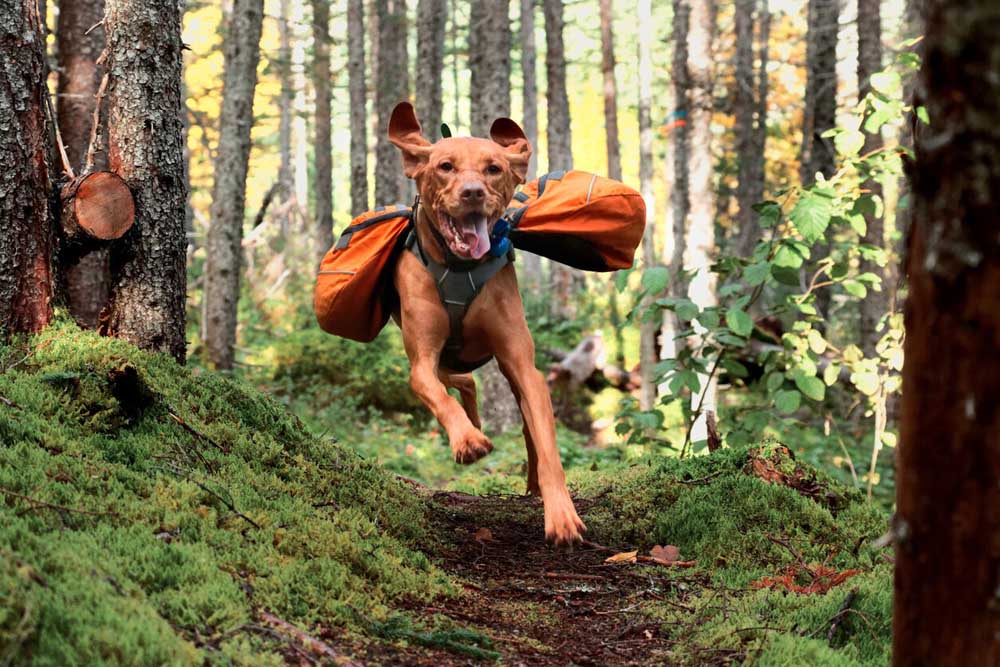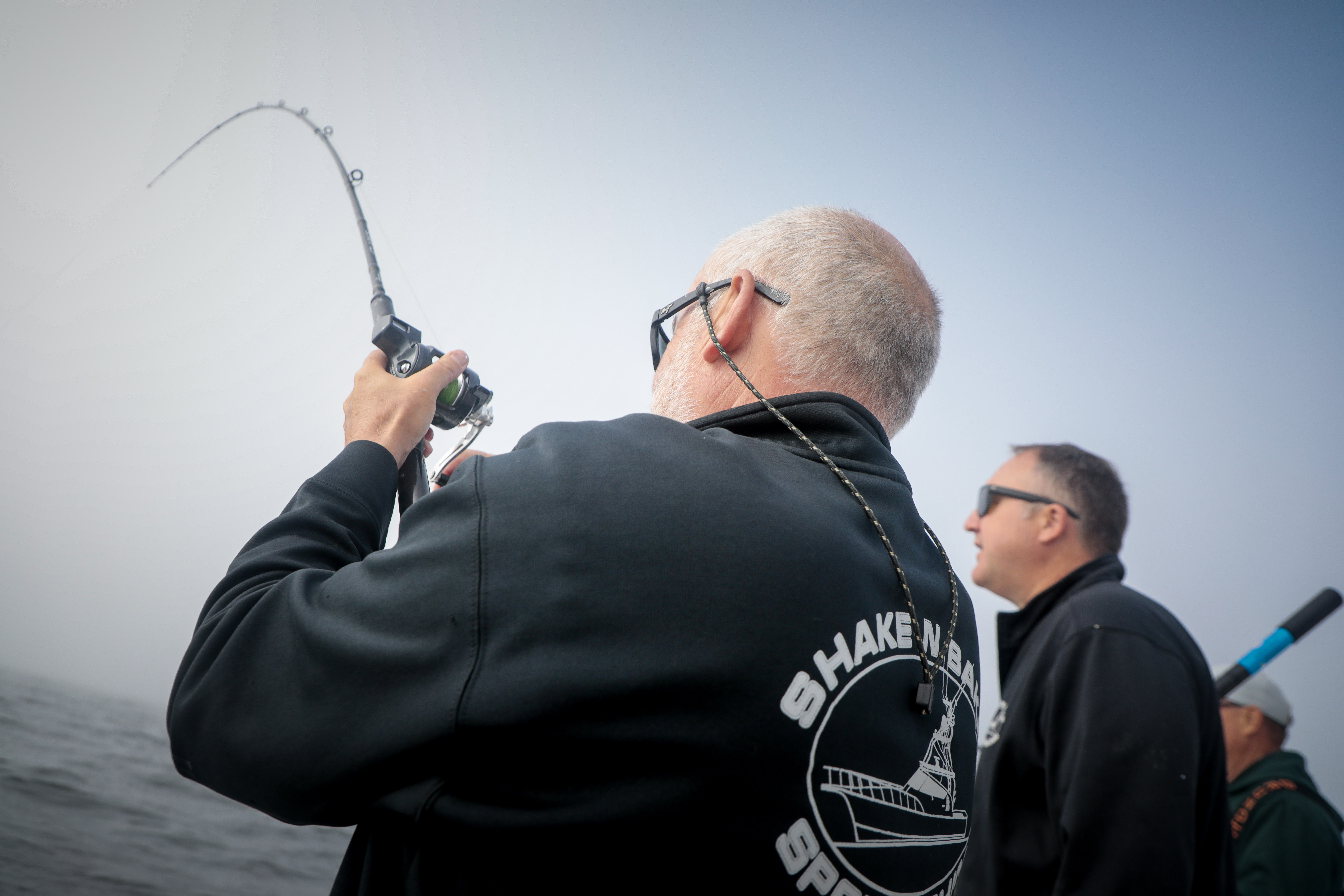Long Beach ponders dog park
Published 5:34 pm Thursday, January 9, 2025

- The concept of establishing a dog park is being examined again in Long Beach after years with no action.
LONG BEACH — It’s an idea that’s been kicked around for at least 15 years — if not much longer — and it was back in front of councilors for discussion again last week.
Trending
The Long Beach City Council held a workshop directly ahead of its Jan. 6 meeting to discuss and receive public testimony regarding the possibility of opening a dog park within city limits. No decisions either for or against a dog park were made by the end of the workshop, which briefly spilled over into the regularly scheduled council meeting.
A dog park has been pursued on various occasions since at least 2010, when Long Beach’s administrator at the time cited its development as one of the city’s short-term goals — it was even included on a list of goals that was displayed in city hall for a time. An initial draft of the 2011 budget included funding for fencing around the perimeter of such a park, but was apparently not ultimately included in that year’s approved budget.
The idea picked up steam again in the mid-2010s, with councilor Mark Perez — who now is in his second stint serving on the council — proposing that funding for a dog park be included in the 2015 budget. His push did not win over a majority of the council, however, while a separate push to redevelop Stanley Park into a dedicated dog park also flamed out.
Trending
Dog park enthusiasts continued prodding the city late into the decade, to no avail. And in January 2020, then-councilor Sue Svendsen led the council in a push to open a dog park around 219 14th St. NW, and the council was slated to tour the site and make a decision about whether to move forward. The topic was sidelined, however, and ordinary in-person council operations were impacted just a couple of months later by the covid-19 outbreak.
Back on the table
Svendsen, now in her second year as mayor, said at last week’s workshop that she brought the issue forward again because it’s been floated for so long and wanted the council to come to make a decision once and for all on whether or not to move forward with opening a park near the public restrooms on the Bolstad beach approach.
“The reason we brought this forward is because it’s been getting kicked around for years,” she said. “People have requested a dog park, both locals and visitors, and I just felt it was time to bring it forward and get it all out in the air.”
Svendsen, who lived in Clark County before moving to Long Beach and served as chair of that county’s animal control board, invited two current and former officials with DOGPAW (Dog Owners Group for Park Access in Washington) in Clark County to testify at the workshop and answer questions from councilors. The nonprofit maintains four off-leash dog parks of various sizes in the county, with the first opening in 2005.
Eileen Cervantes, who joined DOGPAW in 2016 and was appointed president in 2018, said their dog parks range from two to 10 acres and are mostly on flat terrain — the site being eyed in Long Beach is about one acre.
Key starting expenses for their dog parks include fencing, water and mowing services, she said, while the biggest yearly expenses are poop bags and the weekly poop bag pickup service. DOGPAW spends about $2,500 annually for poop bags and waste pickup services on its smallest dog park.
Marty Rutkovitz, the organization’s current president for the past three years, said they are under contract with Clark County for three of their parks and are under contract with Vancouver for the other. He likened DOGPAW as being property managers who provide the volunteers and funds to keep the parks maintained.
Asked who would be responsible for running the dog park, Svendsen said it would be the city. She said Long Beach would be responsible for providing garbage service and some maintenance, but could look at establishing a volunteer board to manage the park.
Svendsen said they chose the site in question because of its access to public restrooms and ability to provide more robust parking opportunities. The city would also plan on having a watering area for the dogs.
Following the rules
Several obvious concerns were raised by councilors and members of the public, particularly around dog-on-dog or dog-on-people incidents and potential liability issues.
Rutkovitz, responding to councilor George Coleman’s question about DOGPAW’s ability to enforce their rules, said they have unpaid volunteers in their parks but stressed they have no authority to serve as any type of law enforcement.
“What we tell people all the time is we are not policemen, we’re not legally approved to throw people out or remove people physically. Unfortunately it does happen,” he said. “What we do when there are incidents is we try to get the information and get it to animal control, or if many incidents happen sometimes we tell them to dial 911 and ask for the police to come.”
Cervantes noted that the city would have recreational immunity that shields it from lawsuits. “As a government agency, anything that happens on your land automatically falls under recreational immunity,” she said, but added that DOGPAW has had situations where people have tried to sue each other and bring the nonprofit into it.
Having the rules and code enforcement plainly listed on signs at the park is also helpful, Cervantes noted, as well as having regulars who can provide information to newcomers and be their sort of eyes and ears as to what is happening at the park.
“I would like to point out that there are less fights between dogs and humans on any given week than there are in a standard bar,” she said.
Risk of disease
The risk of dogs contracting fleas, ticks and serious diseases such as parvo was also broached during the workshop, which included a stark warning from one member of the public in attendance.
Cervante said DOGPAW has never sprayed for fleas or ticks at their parks and have never really had a problem. They have had problems with giardia, however, and have had to cordon off areas of still water.
Rutkovitz said neither DOGPAW or the county spray, except along the fence line with a homemade remedy for weed control. All dogs who visit their parks are supposed to be vaccinated and registered with the county but, as previously mentioned, enforcement is not stringent.
Krista Barbic, who operates a self-service dog wash station next to Carol’s Salon in Long Beach and has ran Make It Click Dog Training since 2021, said she is not supportive at all of a dog park being opened in the city. She cited a lack of regulation of dog parks and the inability to verify dogs’ vaccination status, as well as keeping parks clean and free of diseases like parvo, giardia and worms.
“People don’t clean up poop — there are the people who are responsible, of course, but there are always going to be people who don’t,” Barbic said. “If you have visited dog parks, and I have visited many to look at them, they are disgusting.”
Barbic raised concerns about the prevalence of dogs contracting giardia at dog parks, which is a parasitic infection that can cause diarrhea in dogs and can become serious if left untreated. Dogs get giardia from ingesting feces-contaminated water, soil or food, and giardia cysts can survive in their environment for months and are instantly infectious.
The peninsula also has “a massive issue of parvo,” Barbic claimed. Parvo is a highly contagious virus that attacks white blood cells and the gastrointestinal tract of dogs and other canines, and is spread by direct contact with infected dogs, the feces of an infected dog, or contact with virus-contaminated surfaces such as kennels, food and water bowls, and collars and leashes.
“It’s extremely contagious, and dogs die very quickly from [parvo] without care — and even with care still they can die,” Barbic said. “That can live in the soil for several years, you can’t get rid of that. The only thing you can do is spray a very heavy chemical bleach to get rid of that, and I don’t think that anybody’s going to the dog park here and doing that, to be honest.”
Perez, who has long been a supporter of a dog park, equated the health and injury risks of bringing a dog to the park with a parent bringing their child to a public playground. People are under no obligation to bring their dog to a park in the first place, he noted.
Svendsen mentioned that she used to run a dog grooming business and is cognizant of the issues raised by Barbic. She believes much depends on how the park is managed and doesn’t believe dog parks are inherently bad.
Saying that veterinarians both on the peninsula and across the river are already overwhelmed as is and that having a dog park would exacerbate that issue, Barbic had harsh parting words for those in favor of the park.
“Having a dog park affects us all negatively, in my opinion, and no educated and caring human would support a dog park — and we won’t, either.”









